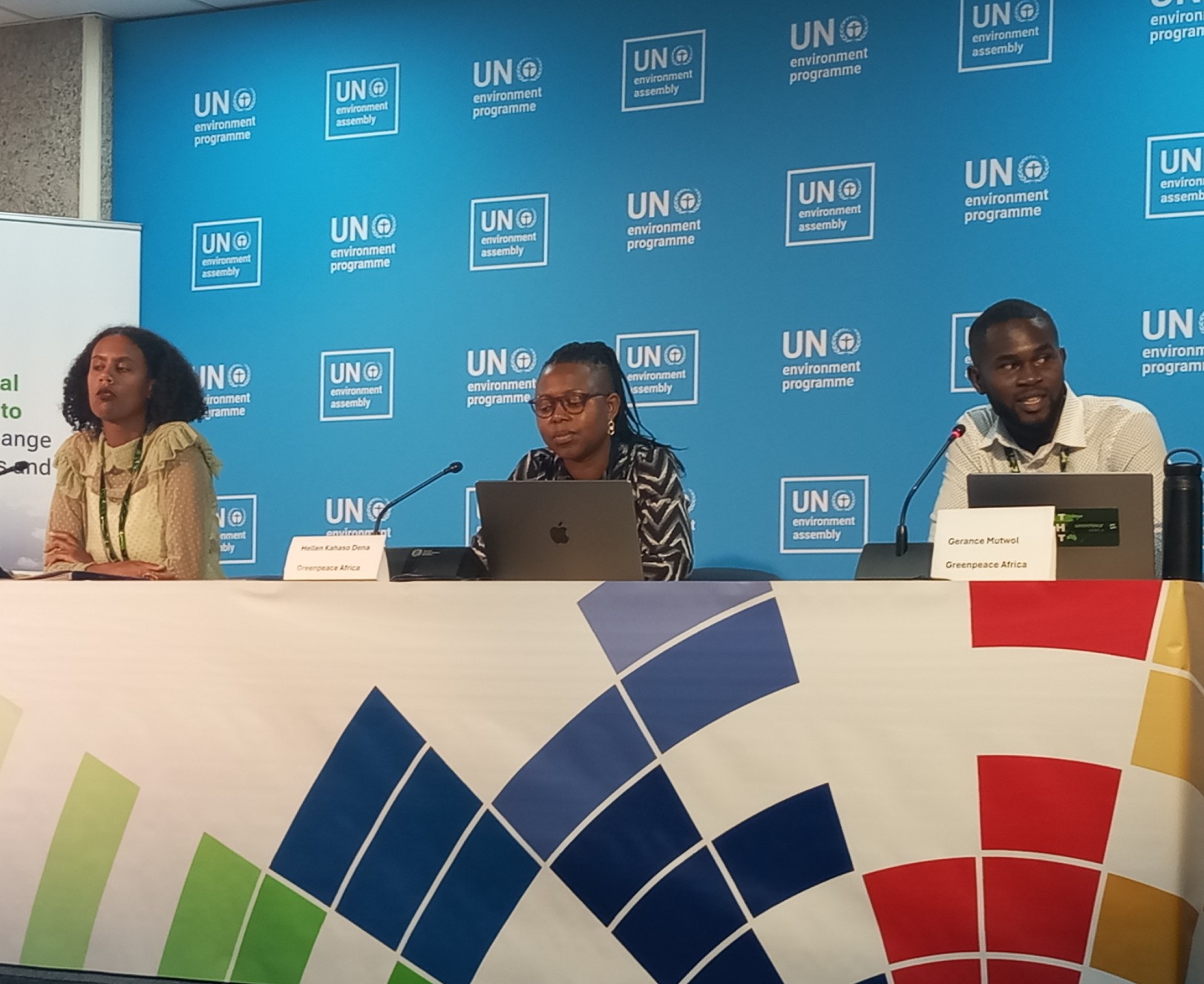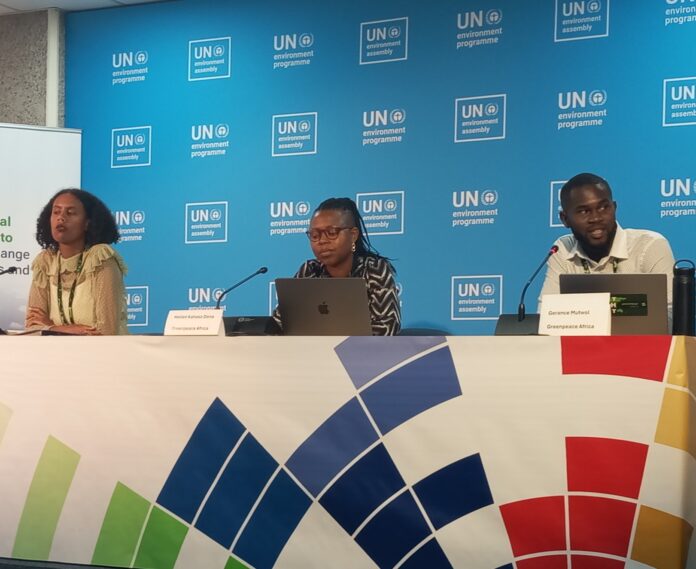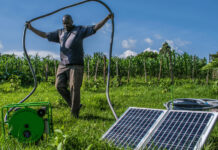By Lenah Bosibori
Nairobi, Kenya: As over 5,000 delegates from more than 180 nations convened in Nairobi during the sixth session of the United Nations Environment Assembly (UNEA -6), fossil fuels crisis eradication took to the center stage during a side event organized by Greenpeace Africa.
The Lobby demanded an end to fossil fuels and welcomed a decisive action against the ongoing climate and plastics crises that have been largely fueled by fossil fuels.
Speaking during the event, Hellen Dena, Project Lead of the Pan-African Plastics Project at Greenpeace Africa said that the planet is drowning in plastics, a crisis intricately linked to the fossil fuel industry.
“Our planet is drowning in plastic, a crisis intricately linked to the fossil fuel industry. Member states are allowing fossil fuel interests to drive the treaty negotiations and water down their ambition. Ending the corporate addiction to plastic is an important part of moving away from fossil fuels, combating climate change, and pollution, and protecting communities,” said Dena.
Dena added that when it comes to plastic pollution, it might not seem as much but every time one carries a reusable water bottle, she/he is contributing to less plastic footprint and plastic waste.
“We need collective responsibility and we are also calling upon big businesses from America, Europe, and the UK into the table in order for us to be able to deal with this crisis, this is because they are the people with resources, they can invest, research and develop,” added Dena.

On her part Seble Samuel head of Africa Campaigns and Advocacy for the Fossil Fuel Non-Proliferation Treaty Initiative called for the adoption of an international treaty to equitably phase out fossil fuels and deliver a financial global just transition to distributed renewable energy systems.
“An international fossil fuel treaty is not only necessary, it is urgent. We need binding commitments to phase out fossil fuels and ensure a just transition for affected communities, particularly in Africa, that diversifies economies, deploys renewables, builds development alternatives, and puts finance, technology, justice, and equity at the Centre,” said Samuel.
She reiterated that there are three substances that have driven around 90 percent of carbon emissions in the last decade, the three are coal oil and gas, and despite being the leading driver of the climate crisis, they are completely absent from our international policy, they have become geniuses in making themselves be invisible in our negotiations despite being the main driver of this crisis.
“We ask ourselves how are we going to deal with the crisis if we are not dealing with the root cause? The African continent has the right to development but is being held back by fossil fuels,” added Samuel.
The proposed Fossil Fuel Non-Proliferation Treaty aims to provide a binding plan for a managed with three pillars just transition, non-proliferation and fair phase out.
According to Samuel, there is a growing momentum for fossil fuels treaties as 12 nation states have backed the proposal and over 1000 organizations supporting it.
She further says that fossil fuels have underdeveloped the African continent citing a challenge to accessing clean energy and clean cooking, she notes that most fossil fuel operations on the continent are headquartered abroad.
“We need a binding plan which is the proposal that comes from the fossil fuel Non-Proliferation Treaty written on the shoulders of the entire end fossil fuels movement and the call for renewable energy,
Countries are on track to produce 110 percent more fossil fuels between now and 2030, than what we can safely burn to limit warming to 1.5 degrees, this massive overshoot and its happening because there is no framework to rein in this production and it’s leading us to dangerous overshoots of our climate targets
Amos Wamanya Senior Advisor for Renewable Energy and Just Transition at Powershift Africa Africa highlighted the devastating impact of fossil fuels on the climate.
“Fossil fuels are failing to power the African continent, despite decades of coal, oil, and gas extraction, 600 million people lack energy access, the era of fossil fuels must end now if we are to avert catastrophic climate change. We urge member states at UNEa-6 to commit to a rapid and just transition to renewable energy,” said Wemanya.
Further, the lobby reiterates that Africa is a continent with 950 million people inhaling toxic fuels every single day because they don’t have access to clean cooking and it has made Sub-Saharan Africa an energy poverty hotspot. “We do not own our energy, 60 percent of the fossil fuel operations on this continent are headquartered abroad, the majority in Europe,” added Samuel.
b.lenah89@gmail.com














